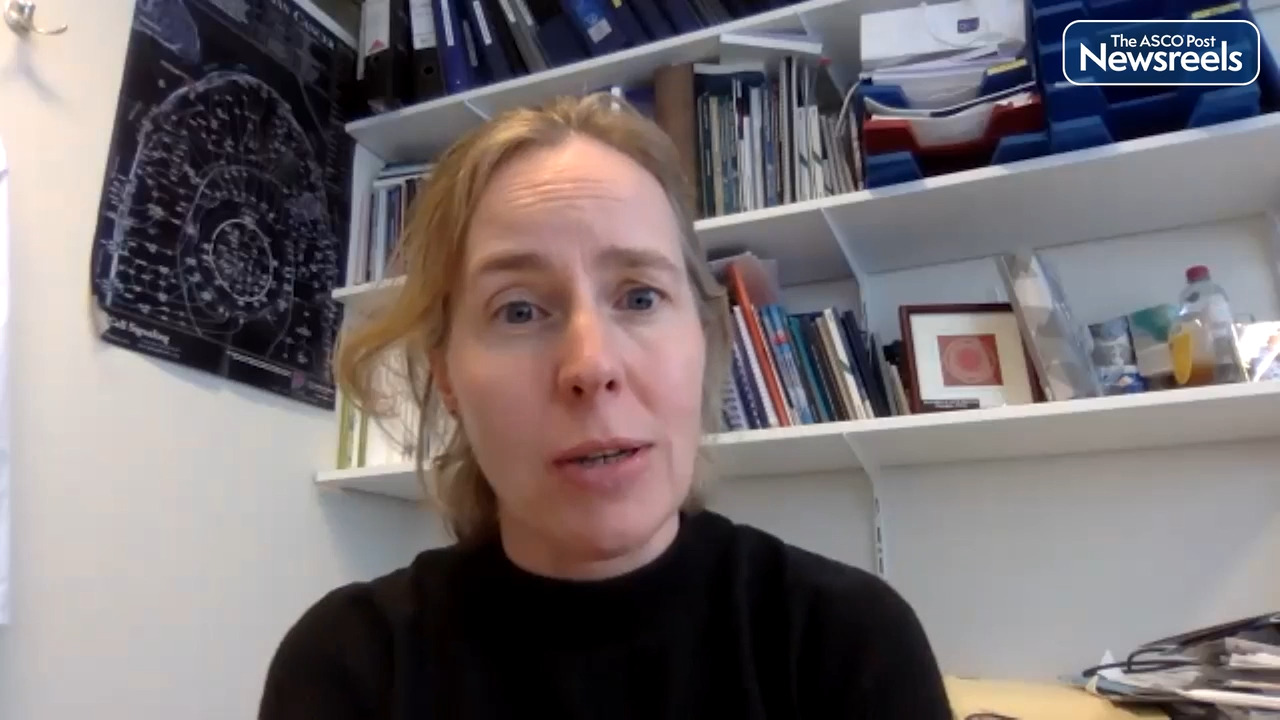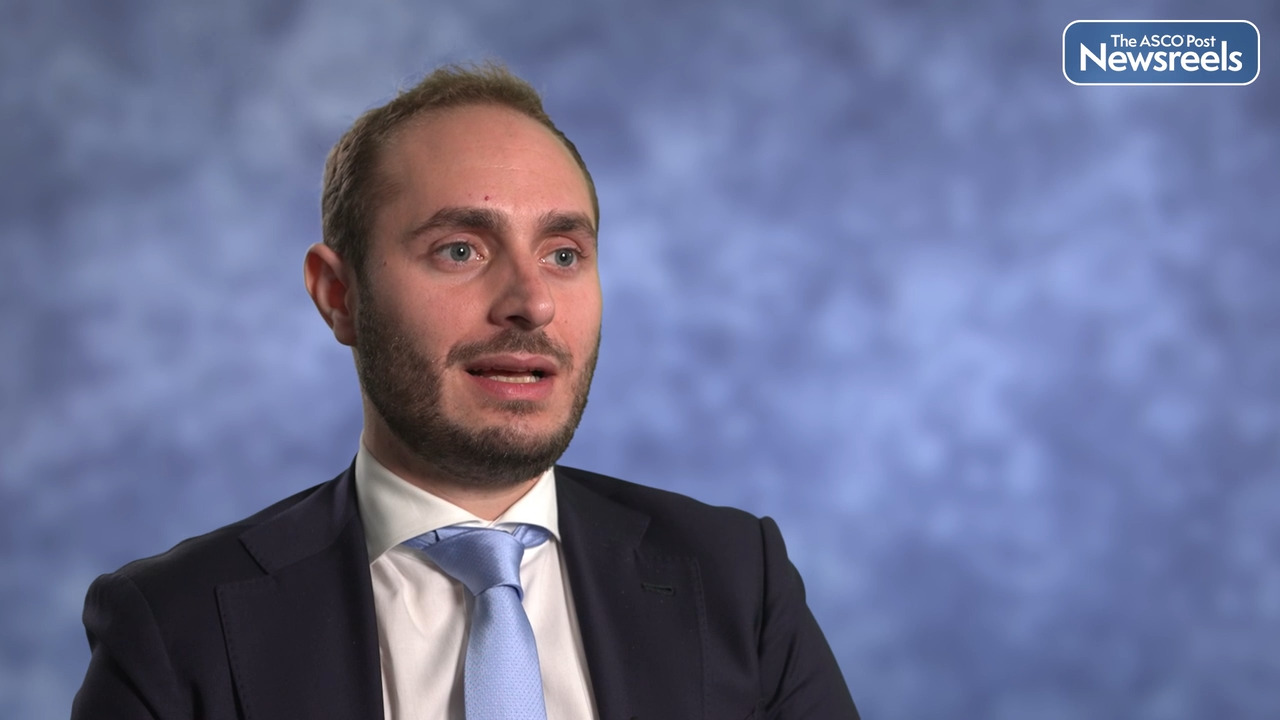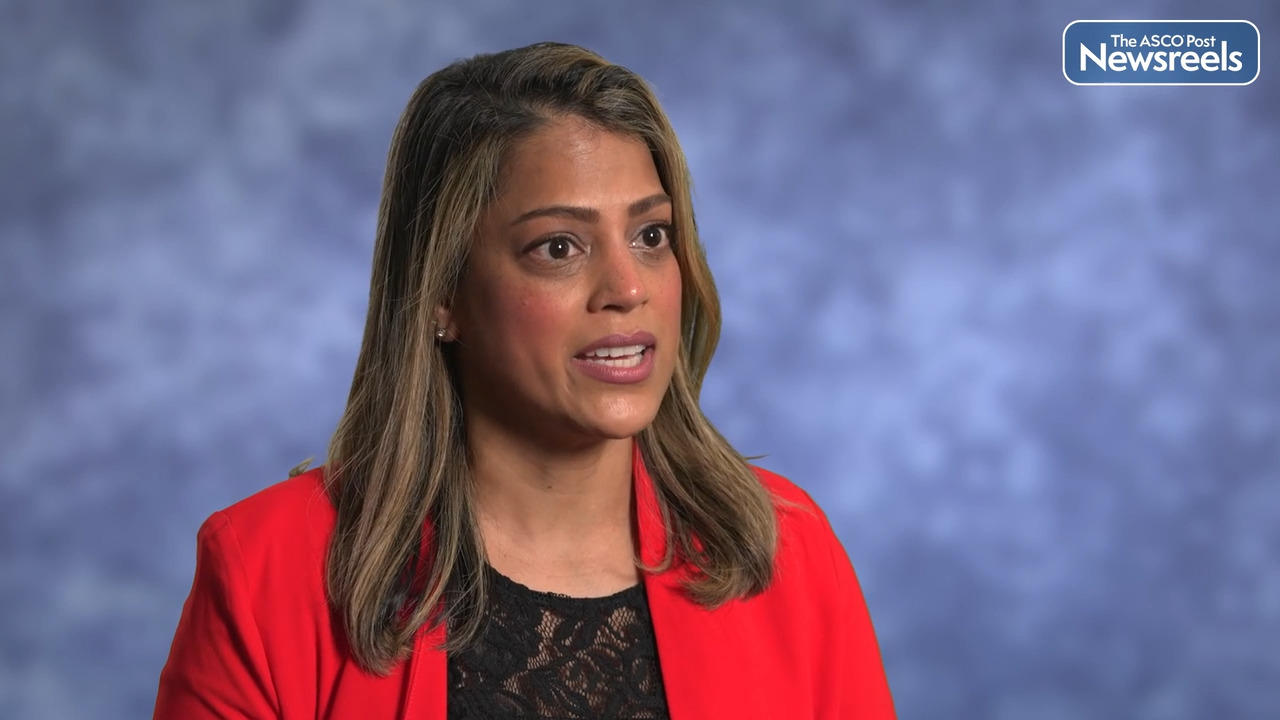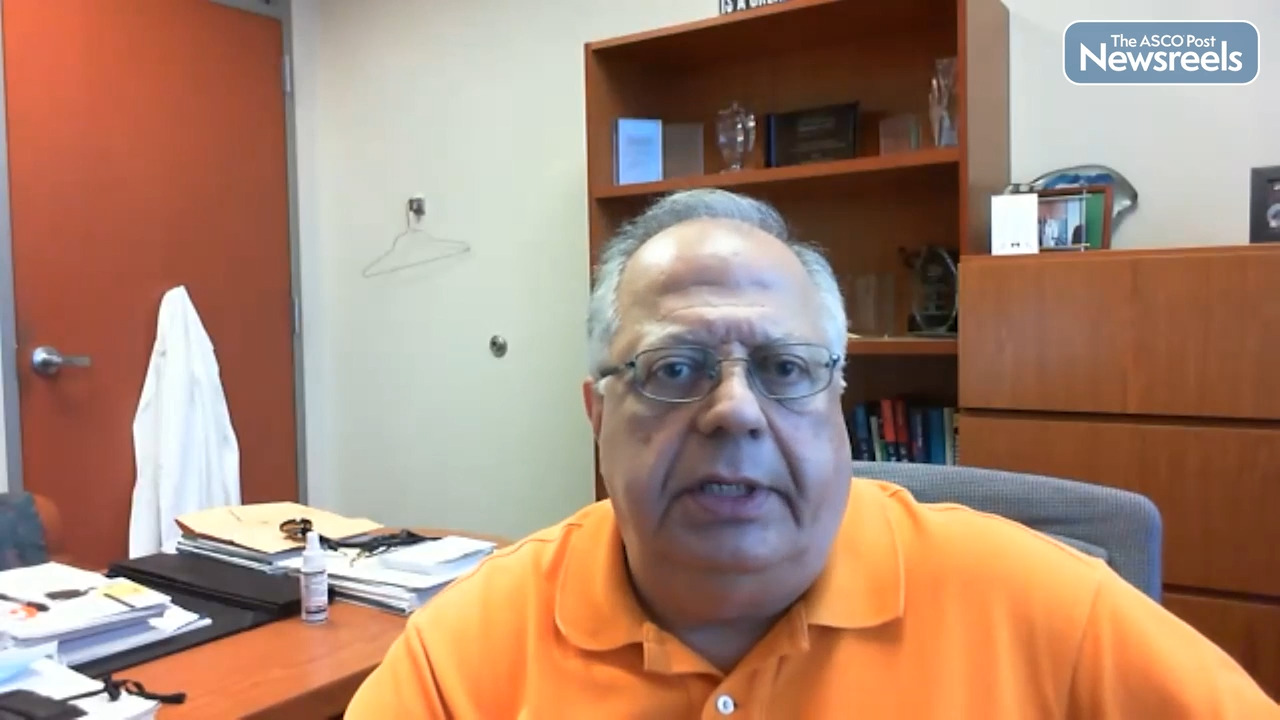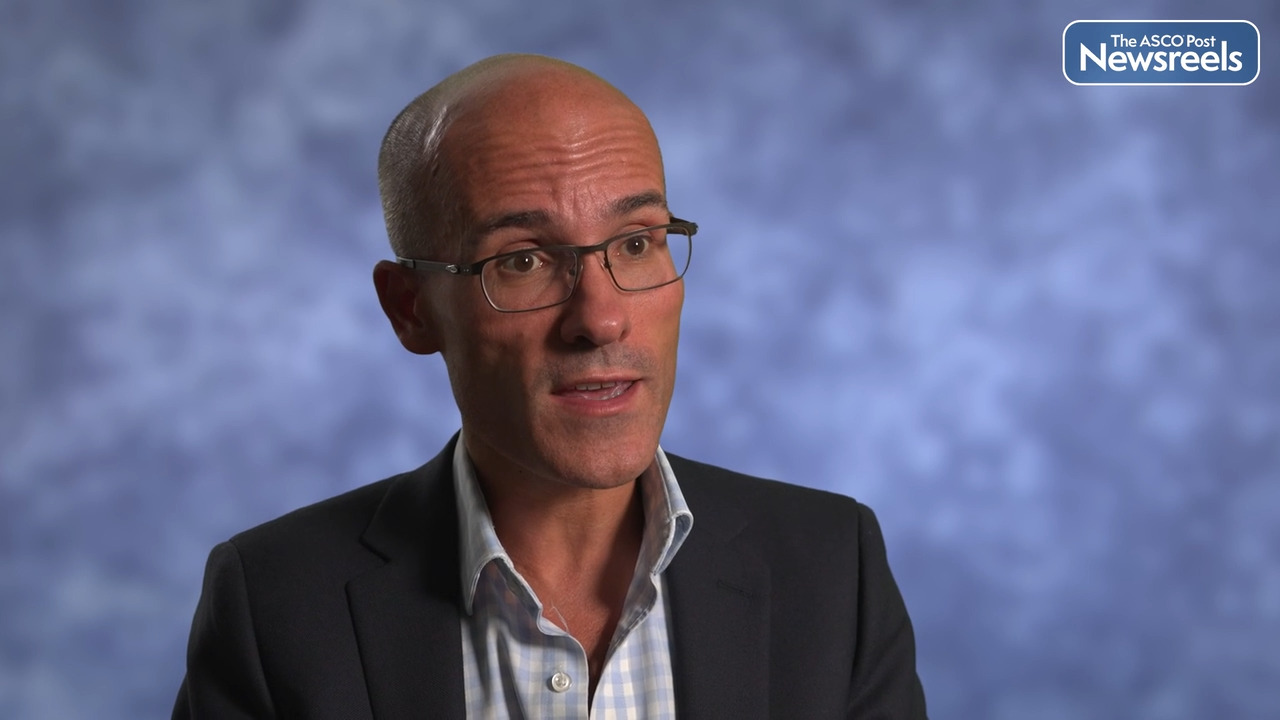Rahul Aggarwal, MD, on Prostate Cancer: Phase III Data on Apalutamide and Androgen Deprivation in Relapsed Disease
ESMO Congress 2022
Rahul Aggarwal, MD, of the University of California, San Francisco, discusses recent data from the PRESTO study, which showed that apalutamide plus androgen-deprivation therapy (ADT) for 12 months significantly prolonged PSA progression-free survival compared with ADT alone in patients with biochemically recurrent prostate cancer. These results provide support for the intensification of ADT in this setting. (Abstract LBA63).
The ASCO Post Staff
Marleen Kok, MD, PhD, of The Netherlands Cancer Institute in Amsterdam, discusses the initial results from the BELLINI trial, which tested whether short-term preoperative nivolumab, either as monotherapy or in combination with low-dose doxorubicin or novel immunotherapy combinations, can induce immune activation in patients with early-stage triple-negative breast cancer with tumor-infiltrating lymphocytes (Abstract LBA13).
The ASCO Post Staff
Antonio Marra, MD, of Memorial Sloan Kettering Cancer Center, discusses a mutational signature analysis that reveals patterns of genomic instability linked to resistance to endocrine therapy with or without CDK4/6 inhibition in patients with estrogen receptor–positive/HER2-negative metastatic breast cancer (Abstract 210O).
The ASCO Post Staff
Sapna P. Patel, MD, of The University of Texas MD Anderson Cancer Center, discusses the latest findings from the SWOG S1801 trial, which showed that using single-agent pembrolizumab as neoadjuvant therapy improved event-free survival compared to adjuvant therapy in high-risk resectable stage III–IV melanoma (Abstract LBA6).
The ASCO Post Staff
Nizar M. Tannir, MD, of The University of Texas MD Anderson Cancer Center, discusses phase III findings from the PIVOT-09 study, which compared bempegaldesleukin plus nivolumab with the investigator’s choice of a tyrosine kinase inhibitor (either sunitinib or cabozantinib) in patients with previously untreated advanced renal cell carcinoma (Abstract LBA68).
The ASCO Post Staff
Charles Swanton, PhD, of The Francis Crick Institute, discusses a newly discovered mechanism of action for air pollution–induced non–small cell lung cancer in which particles linked to climate change appear to promote cancerous changes. The finding might pave the way for new potential approaches to lung cancer prevention and treatment (Abstract LBA1).
